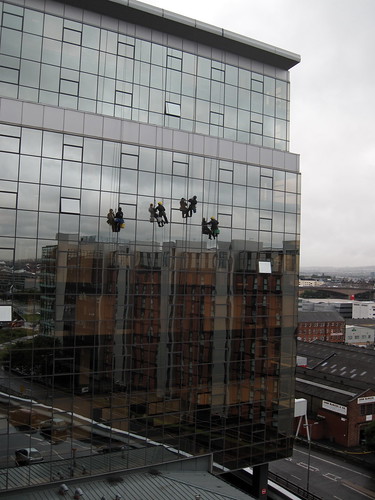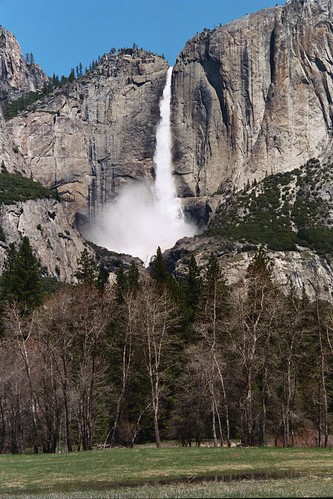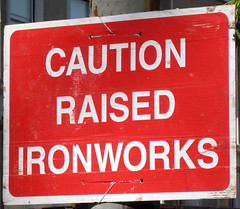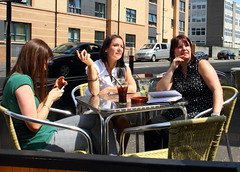I missed an article about Patents in my last “Links” post. Patents are about to become a bigger problem quotes from two historically-significant inventors: Benjamin Franklin and Johannes Salk. With regards to his stove, Ben Franklin refused to enforce his patent, saying:
“That as we enjoy great advantages from the inventions of others, we should be glad of an opportunity to serve others by any invention of ours, and this we should do freely and generously.”
Salk, when asked, “Who owns the patent on this vaccine [against Polio]?” replied:
“Well, the people, I would say. There is no patent. Could you patent the sun?”
In the copyright and patent systems, copyright has to do with “creative works” which include such odd creatures as “graphic designs” and “trademarks” and even concepts. Patent has also to do with concepts, and extends to such nonphysical things as software, which is … distinctly odd, so far as I can see, particularly since software code isn’t really a physical device, and is words; yet software code isn’t really words, it’s a set of instructions, very much like a recipe, and recipes are not protected by either patent or copyright.
For me, the problem in fitting software into either copyright or patent comes down to this: what is “the essence” of what is being protected?
In a copyrighted work, the owner is allowed to sell that work. Now, “that work” is what, exactly? In the case of printed music, “that work” is actually the typography – it is not the notes; after all, how can you copyright notes? In the case of performed music, it is actually any recording made which is subject to copyright, not the performance itself (although there may be restrictions regarding recording, as dictated by other laws, etc.). In the case of a printed work, “that work” is the words themselves and not the typography. These “creative works” are covered by copyright and not by patents. In the case of copyrighted works, what’s protected is a creative work which is an end product constructed by a human being.
Patents cover things: a special typographical process, a special recording device. Patents are similar to copyrights in that they protect the owner for a period of time, with the specific intent that the owner use that time to use the device to make money. Patents, though, should not cover the same types of creative works as copyright; the intent of each system is different. In the case of patented works, patents are issued on the design of a product such that the product which fulfills that design is what is protected from anyone else using that same design. This is where the two systems really differ: copyright is about end products generated by humans, patent is about designs for end products.
So, where does software fit into the picture? Software is patented, currently, so … nobody can copy the same set of instructions as protected by patent. This is where “obvious” comes into play, because software patents should cover source-code (the “design” for the product) and that source-code should not be “obvious” to anyone else in a similar line of work. But when you consider that 1) any given computer language is designed to operate in a certain way and 2) any given task to be performed by an application is very likely to be an “obvious solution” to such a problem, well, how can a patent be issued?
Software patents also don’t seem quite to fit into the “patents” system because frequently the patent granted isn’t upon source-code, but upon higher-level concepts such as “streaming video to a mobile phone.” The source-code never comes into play; rather, the idea is what is being protected, which is quite silly: how can an idea be non-obvious, and how can it be that such patents are issued without detailed designs for making them work (i.e., the source-code)?
Perhaps source-code, which seeks to solve a certain problem, should be granted copyright instead? Well … this comes up against the problem that source-code doesn’t really seem like a creative work in the same way as, say, a novel would. Also, because source-code is subject to a very limited set of grammar and syntax, and is actually a set of instructions for a finished product rather than a finished product in and of itself, source-code seems more like something which would fall under a patent.
However, if source-code is patented, it would need to meet the non-obvious criterion, which it certainly does not.
There’s also the last perversion of the software patent system which is what upsets most: software patents aren’t used to make things for sale which provide income; rather, they are used to prevent others from doing so or to extort massive amounts of cash from those who try.
Software patents should not be valid. Software copyrights should not be, either. Software source-code does not fit into the existing system, period.
In expanding the patent and copyright systems to overlap, the definition of each has been blurred beyond the intent of the terms, and laws have been stretched to “protect” the “owners” of such ideas.
How is it that one can “own” an idea (or a recipe)? Well, one may enslave the people who try to make use of it, or may brutalize them into financial ruin. Such is a very common use of modern copyright and patent law: the suppression of ideas.
-D









